Written by Bryan Dearsley
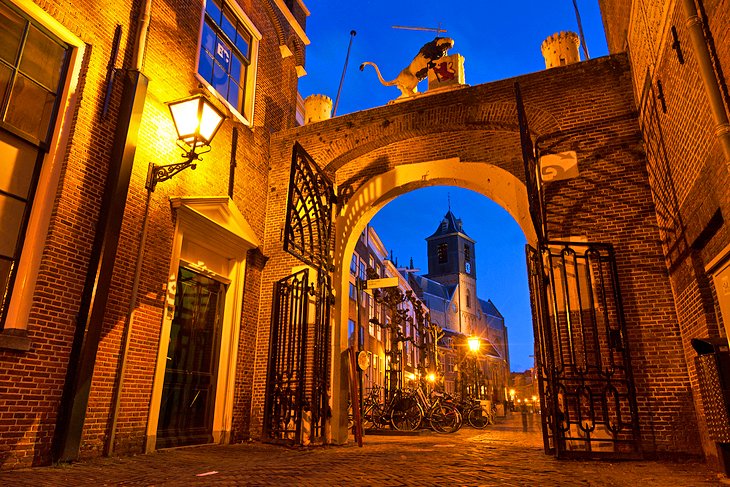
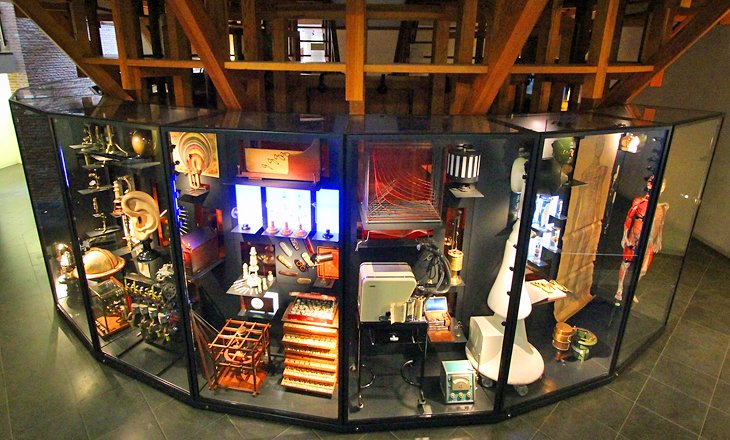
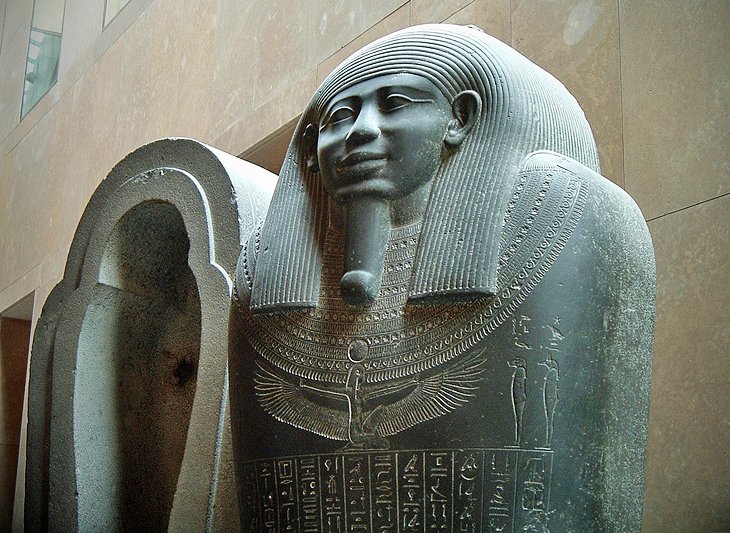
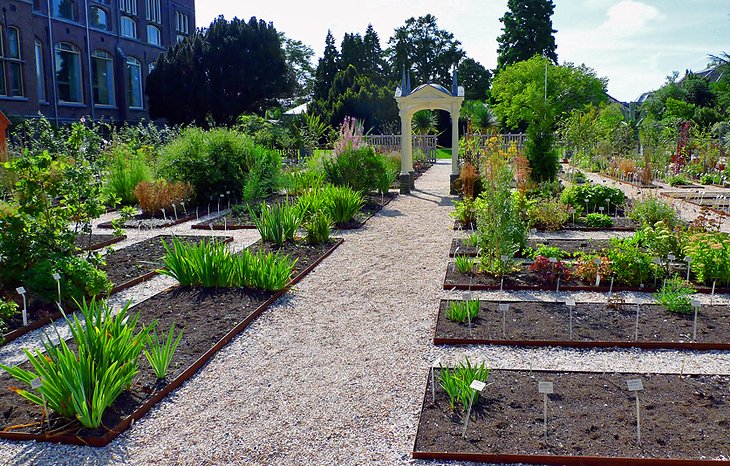
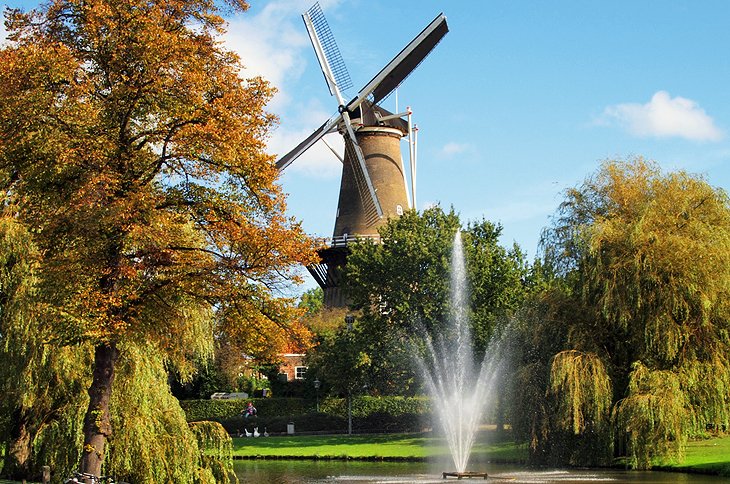

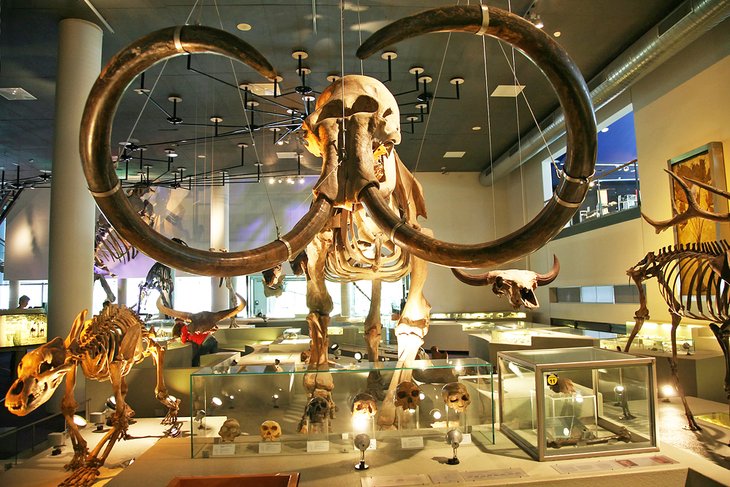

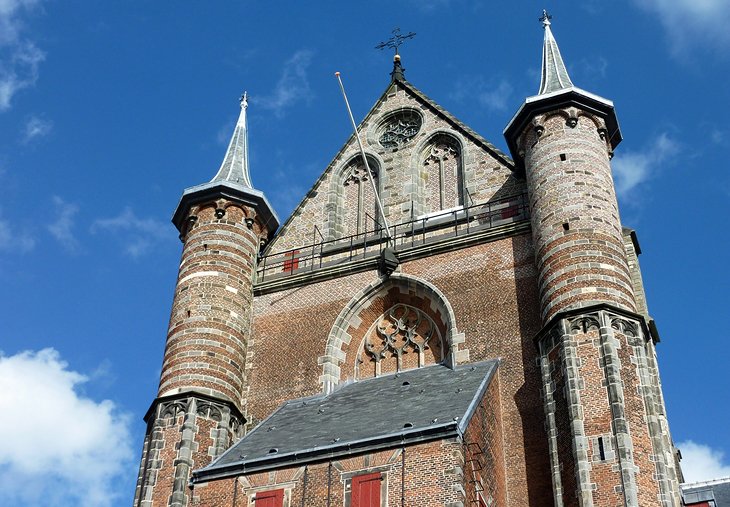
The university town of Leiden (or Leyden in English) is one of the oldest and most picturesque towns in the Netherlands.
Leiden lies in an extensive flower growing area, the produce of which
is marketed in the town and surrounding region. It's also one of the
leading cultural centers in the Netherlands. In addition to its famous
Library University, the town is home to a number of other research
institutions, including the National Herbarium, with its vast
collections of dried plants, and the Royal Institute of Linguistics and
Anthropology. The town is also famous as the birthplace of several great
painters from the 16th and 17th centuries, including Lucas van Leyden,
Rembrandt, Jan Steen, Jan van Goyen, and Frans van Mieris.
1 The Old Castle: Burcht van Leiden

The Old Castle: Burcht van Leiden
Share:
Accessible through an interesting old gateway displaying the figure
of a lion with the town's coat of arms, Leiden's castle (Burcht van
Leiden) is a must-visit. Perched atop a 12-meter-high mound built to
provide a refuge from flooding, this 11th-century fort was protected by a
circuit of walls 35 meters in diameter, along with two canals, one of
which can still be seen at the foot of the hill, as well as a
sentry-walk around the walls. In the 17th-century, a tower was built
bearing the arms of the burgomasters, who between 1651 and 1764 were
also governors of the castle. From the castle, panoramic views extend
over the surrounding area.
Address: Burgsteeg 14, Leiden
2 Editor's Pick Museum Boerhaave

Museum Boerhaave
bertknot
Share:
The wonderful little Museum Boerhaave offers a fascinating look at
the history of medicine and science through the centuries. In a former
convent, this excellent tourist attraction boasts a large collection of
apparatus developed at the University of Leiden for scientific research
and used across Europe.
Named after Dutch physician Herman Boerhaave, a famous botanist and
university professor whose students included Peter the Great and
Voltaire, the museum also includes a fascinating collection of "Gapers,"
carved wooden heads depicting the effects of swallowing medicines,
along with the Leiden Anatomical Theater where dissections of cadavers
were performed. (English language guided tours are available.)
Address: Lange Sint Agnietenstraat 10, 2312 WC Leiden
Official site: www.museumboerhaave.nl/english/
3 National Museum of Antiquities

Sarcophagus of Ahmose
Jan
Share:
The National Museum of Antiquities (Rijksmuseum van Oudheden) features numerous archeological exhibits from Egypt
and the Near East, as well as from Greek and Roman periods. Founded in
1818, this first-rate attraction features numerous sculptures, ancient
vases, and smaller objects from prehistoric to Roman times. In the
courtyard of the museum is the Nubian temple of Taffah, presented to the
country by President Sadat in 1979 in gratitude for Dutch help in
saving monuments threatened by the construction of the Aswan Dam.
Address: Rapenburg 28, 2311 EW Leiden
Official site: www.rmo.nl/index.php/do-main/language-en
4 Hortus Botanicus Leiden

Hortus Botanicus Leiden
zoetnet
Share:
Part of the University of Leiden's Botanic Garden, Hortus Botanicus
was originally laid out in 1590, making it one of the oldest such
gardens in the world. More than 10,000 botanical species along with
dozens of bird types are found here, many from far-flung corners of the
globe. A highlight of this popular historic garden is the Clusiustuin, a
reconstruction of the first systematically arranged botanical garden
originally located behind the University building. Also worth a visit
are the Winter Garden with its collection of cycads and carnivorous
plants, the large ornate Orangery built in 1744, the Rosarium, and the
Japanese Garden. English language guided tours are available with
advance notice.
Address: Rapenburg 73, 2311 GJ Leiden
Official site: www.hortusleiden.nl/index.php/english/
5 The Molen de Valk Windmill Museum

The Molen de Valk Windmill Museum
Bart van Leeuwen
Share:
Leiden's Windmill Museum (Molen de Valk) is housed in a spectacular
seven-story stone flour mill built in 1743. Literally translated as "the
Falcon," this magnificent example of the ubiquitous Dutch windmill
stands on high ground that originally formed part of the town's
fortifications (in the early 17th century, 19 windmills were within the
town walls). After restoration in 1964, Molen de Valk, along with the
dwelling house of the last miller, was opened to the public as a museum.
Highlights of a visit to this still-operational mill include displays
and exhibits relating to the building's history, the story of milling,
and numerous tools and artifacts. (Guided tours are available upon
request.)
Address: 2e Binnenvestgracht, 1 2312 BZ Leiden
6 Museum De Lakenhal

Decorative tiles
Hans Splinter
Share:
On the north side of the Oude Vest is Leiden's Municipal Museum
(Museum De Lakenhal). Housed in the town's former Cloth Hall (Lakenhal)
built in 1640 and used for its original purpose until 1800, the present
museum was opened in 1874 and boasts an impressive collection of
paintings by leading Dutch artists of the 16th and 17th centuries
including Jan van Goyen, Rembrandt, and Jan Steen. Also interesting is
the museum's collection of applied and decorative art. Other notable
exhibits include the refurbished Inspection Room where cloth was
inspected, along with a large collection of religious artifacts.
Address: Oude Singel 28 /32, 2312 RA Leiden
7 Naturalis Biodiversity Center

Ammonite fossil
Hans Splinter
Share:
The Netherlands' national museum of natural history, the Naturalis
Biodiversity Center, offers fascinating information and exhibits
relating to nature. All told, this large museum houses more than ten
million animal and insect specimens, along with rocks, minerals, and
gemstones, all laid out in an easy to follow manner in departments such
as the Nature Theater, which deals with animal and plant life, and
Primeval Parade with its fascinating displays of fossils. For
youngsters, many hands-on exhibits, including games and fun experiments,
encourage a little learning while they play.
Address: Darwinweg 2, 2333 CR Leiden
Official site: www.naturalis.nl/en/
8 The National Museum of Ethnology

The National Museum of Ethnology
Jan
Share:
Widely considered to be the first such museum in the world - rather
than merely a collection of curiosities - Leiden's National Museum of
Ethnology (Rijksmuseum Volkenkunde) is handily located near the Molen de
Valk windmill and is a pleasant way to spend an hour or more. Founded
in 1837, it was originally housed in a number of buildings spread across
the town, until a new home was found for it in 1937 in the former
University Hospital. Its extensive collections come from all over the
world, with an emphasis on artifacts from Indonesia and Japan. Of particular interest is the Buddha Room with its collection of statues depicting the prophet in a variety of poses.
Address: Steenstraat 1, 2312 BS Leiden
Official site: www.volkenkunde.nl/en
9 The Leiden American Pilgrim Museum
Of particular interest to visitors from the USA is a small museum tucked away behind Hortus Botanicus known as the Leiden American Pilgrim Museum. Dedicated to the Pilgrim Fathers, the museum chronicles the group's flight from England
for the safety of Amsterdam in 1608, and their eventual arrival in
Leiden. Here, they remained until 1620 before beginning their epic
voyage to North America via Southampton where they joined the Mayflower.
The museum provides interesting material concerning Pilgrim life in the
town, along with the history of the 14th-century home in which it's
housed. Highlights include displays of furniture, books, and other
materials from the period, along with maps and engravings.
Address: Beschuitsteeg 9, 2312 JT Leiden
Official site: www.leidenamericanpilgrimmuseum.org/index.htm
10 St. Pieterskerk

St. Pieterskerk
Share:
Famous for its annual celebration commemorating Leiden's liberation
from the Spanish, the foundations of the Late-Gothic cruciform basilica
that is St. Pieterskerk date from 1121 when the town's first church was
built here. The current church was begun in the 13th century, with the
choir being completed in 1339, and the nave with its double aisles added
in the 14th century. Highlights include the building's timber
barrel-vaulting extending to the west front, and the many monuments of
various university professors. Of particular note is the tomb of John
Robinson, a distinguished member of the group that was to become the
Pilgrim Fathers; the Late-Gothic carved wooden altar dating from the
early 16th century; and the organ built around 1640. For a truly unique
experience, book a night in the adjoining Villa Rameau, a former
16th-century almshouse.
Address: Kloksteeg 16, Leiden, Zuid-Holland 2311 SL, Netherlands
Official site: www.pieterskerk.com/en/
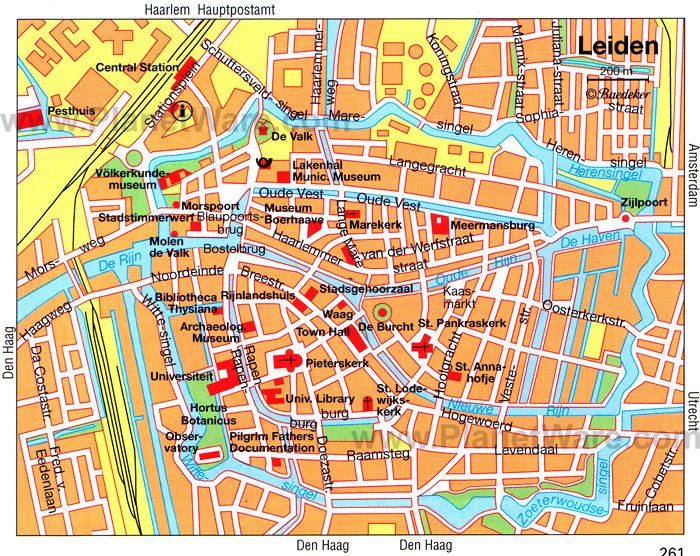
No comments:
Post a Comment